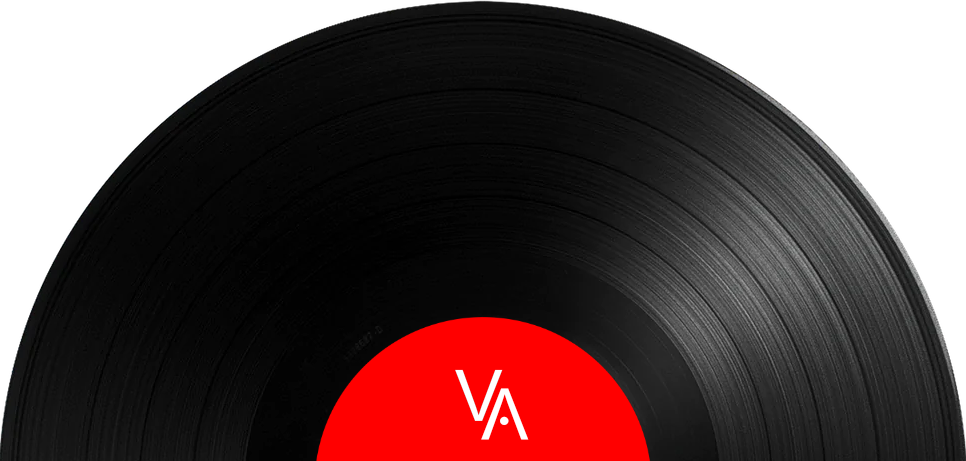
There are some bands you can look at and date. Moxy is one of those bands. The hair, the porn star moustaches, the clothes - it all literally screams 1970s. But the music doesn't. It still stands up almost 50 years on and sounds as fresh now as it did then. This is good debut album - a great debut album, in fact - and I have to wonder why they didn't become more successful because of it.
It wasn't for lack of trying. The band, who had previously called themselves Leigh-Ashford, was joined by singer Buzz Shearman in 1974, after which they changed their name and adopted a heavier sound. They set about touring Canada almost non-stop during 1974 and into 1975 before having a hit with Can't You See I'm A Star - third song, side one. They then toured the U.S. on the strength of the radio airplay that song generated, finding a particularly enthusiastic audience in Texas, where in 1977 an unknown Australian act called AC/DC opened for them.
Not too many people are aware that many of the guitar solos on this record were performed by session musician Tommy Bolin, who had previously played lead guitar for The James Gang and would later replace Ritchie Blackmore in Deep Purple.
This record - also known as The Black Album - was recorded over two weeks in early 1975. Bolin appeared because he just happened to be in the same studio (he may have been recording his own album, Teaser, at the time) and was so impressed with Moxy's sound that when asked by the band's manager, Roland Paquin, to fill in, he said yes. Turn's out Moxy's guitarist, Earl Johnson, had been turfed from the studio after he got into a disagreement with producer Mark Smith, so Bolin was brought in to play the solos, although Johnson did play the rhythm parts. Johnson is a terrific player who really did a lot to help define the band's sound, so I don't know why the band opted to allow their producer to sub him out like that. Seems over the top, no matter the disagreement.
The back cover also lists Buddy Caine as the band's second guitarist, but he didn't join until after this record was recorded. So what you're hearing is all Earl and Tommy Bolin. As far as I know there's no Buddy Caine on it. I wonder if he collects royalties?
Bolin's appearance on this record garnered some much needed attention in the American media, which led to a new record contract that resulted in a worldwide reissue of this record in 1976, after which my favourite track on this album - Fantasy - hit the Top 20 charts on KISS-FM in San Antonio, where disc jockey Joe Anthony played the album in its entirety on several occasions.
Comparisons of the band's sound were made to Aerosmith, Deep Purple and fellow Canadian rockers, Rush (who were still a hard rock band at the time and hadn't yet started writing songs about books). Geoff Barton, of the UK publication Sounds, called Moxy "Canada's Led Zeppelin". They became the opening act for Black Sabbath and played for larger audiences. Things were looking really good, indeed.
But then not much happened. Other albums followed and the band continued to tour at a relentless pace - the smell of The Big Time was right there - but it all began to take its toll. Buzz Shearman developed vocal cord problems and left the band. He was replaced by Mike Reno, later of Loverboy, and this is pretty much where Moxy - for me, anyway - comes to an end. I'm not sure why, but I was never interested in any of the incarnations of the band beyond their second LP. Even Riding High, the third record with the original lineup intact, didn't do anything for me.
Shearman would rejoin Moxy in 1979, but by then Earl and Bill had left and it was just too late. Buzz would remain in front of the microphone until his death in a motorcycle accident in 1983, and the band would continue to limp along for years afterward with many different members rotating through the ranks. By then their best efforts - this first record and Moxy II - were far behind them. This record is the real classic. Die-hard Bolan fans are always looking for it, so it's also probably the most sought after. And it's not that expensive in the wild, either.
It is great record that should have resulted in more fame and fortune for a band that should have made it bigger than they did. Who knows why these things happen, and why the music gods smile on some bands but not others. Standout tracks here include Can't You See I'm A Star - a song I immediately sat down and learned to play on guitar - Sail On Sail Away and the aforementioned Fantasy, the terrific tune that opens the album and immediately draws you in. First time I heard it I knew I was hearing something special and I wanted to hear more.
My copy is the original pressing and it sounds great. It's heavy and melodic and very well produced, although not overly so. It's something you play really loud in the car. If you are into heavy rock and roll, you really should have this record in your collection.
There are some bands you can look at and date. Moxy is one of those bands. The hair, the porn star moustaches, the clothes - it all literally screams 1970s. But the music doesn't. It still stands up almost 50 years on and sounds as fresh now as it did then. This is good debut album - a great debut album, in fact - and I have to wonder why they didn't become more successful because of it.
It wasn't for lack of trying. The band, who had previously called themselves Leigh-Ashford, was joined by singer Buzz Shearman in 1974, after which they changed their name and adopted a heavier sound. They set about touring Canada almost non-stop during 1974 and into 1975 before having a hit with Can't You See I'm A Star - third song, side one. They then toured the U.S. on the strength of the radio airplay that song generated, finding a particularly enthusiastic audience in Texas, where in 1977 an unknown Australian act called AC/DC opened for them.
Not too many people are aware that many of the guitar solos on this record were performed by session musician Tommy Bolin, who had previously played lead guitar for The James Gang and would later replace Ritchie Blackmore in Deep Purple.
This record - also known as The Black Album - was recorded over two weeks in early 1975. Bolin appeared because he just happened to be in the same studio (he may have been recording his own album, Teaser, at the time) and was so impressed with Moxy's sound that when asked by the band's manager, Roland Paquin, to fill in, he said yes. Turn's out Moxy's guitarist, Earl Johnson, had been turfed from the studio after he got into a disagreement with producer Mark Smith, so Bolin was brought in to play the solos, although Johnson did play the rhythm parts. Johnson is a terrific player who really did a lot to help define the band's sound, so I don't know why the band opted to allow their producer to sub him out like that. Seems over the top, no matter the disagreement.
The back cover also lists Buddy Caine as the band's second guitarist, but he didn't join until after this record was recorded. So what you're hearing is all Earl and Tommy Bolin. As far as I know there's no Buddy Caine on it. I wonder if he collects royalties?
Bolin's appearance on this record garnered some much needed attention in the American media, which led to a new record contract that resulted in a worldwide reissue of this record in 1976, after which my favourite track on this album - Fantasy - hit the Top 20 charts on KISS-FM in San Antonio, where disc jockey Joe Anthony played the album in its entirety on several occasions.
Comparisons of the band's sound were made to Aerosmith, Deep Purple and fellow Canadian rockers, Rush (who were still a hard rock band at the time and hadn't yet started writing songs about books). Geoff Barton, of the UK publication Sounds, called Moxy "Canada's Led Zeppelin". They became the opening act for Black Sabbath and played for larger audiences. Things were looking really good, indeed.
But then not much happened. Other albums followed and the band continued to tour at a relentless pace - the smell of The Big Time was right there - but it all began to take its toll. Buzz Shearman developed vocal cord problems and left the band. He was replaced by Mike Reno, later of Loverboy, and this is pretty much where Moxy - for me, anyway - comes to an end. I'm not sure why, but I was never interested in any of the incarnations of the band beyond their second LP. Even Riding High, the third record with the original lineup intact, didn't do anything for me.
Shearman would rejoin Moxy in 1979, but by then Earl and Bill had left and it was just too late. Buzz would remain in front of the microphone until his death in a motorcycle accident in 1983, and the band would continue to limp along for years afterward with many different members rotating through the ranks. By then their best efforts - this first record and Moxy II - were far behind them. This record is the real classic. Die-hard Bolan fans are always looking for it, so it's also probably the most sought after. And it's not that expensive in the wild, either.
It is great record that should have resulted in more fame and fortune for a band that should have made it bigger than they did. Who knows why these things happen, and why the music gods smile on some bands but not others. Standout tracks here include Can't You See I'm A Star - a song I immediately sat down and learned to play on guitar - Sail On Sail Away and the aforementioned Fantasy, the terrific tune that opens the album and immediately draws you in. First time I heard it I knew I was hearing something special and I wanted to hear more.
My copy is the original pressing and it sounds great. It's heavy and melodic and very well produced, although not overly so. It's something you play really loud in the car. If you are into heavy rock and roll, you really should have this record in your collection.


